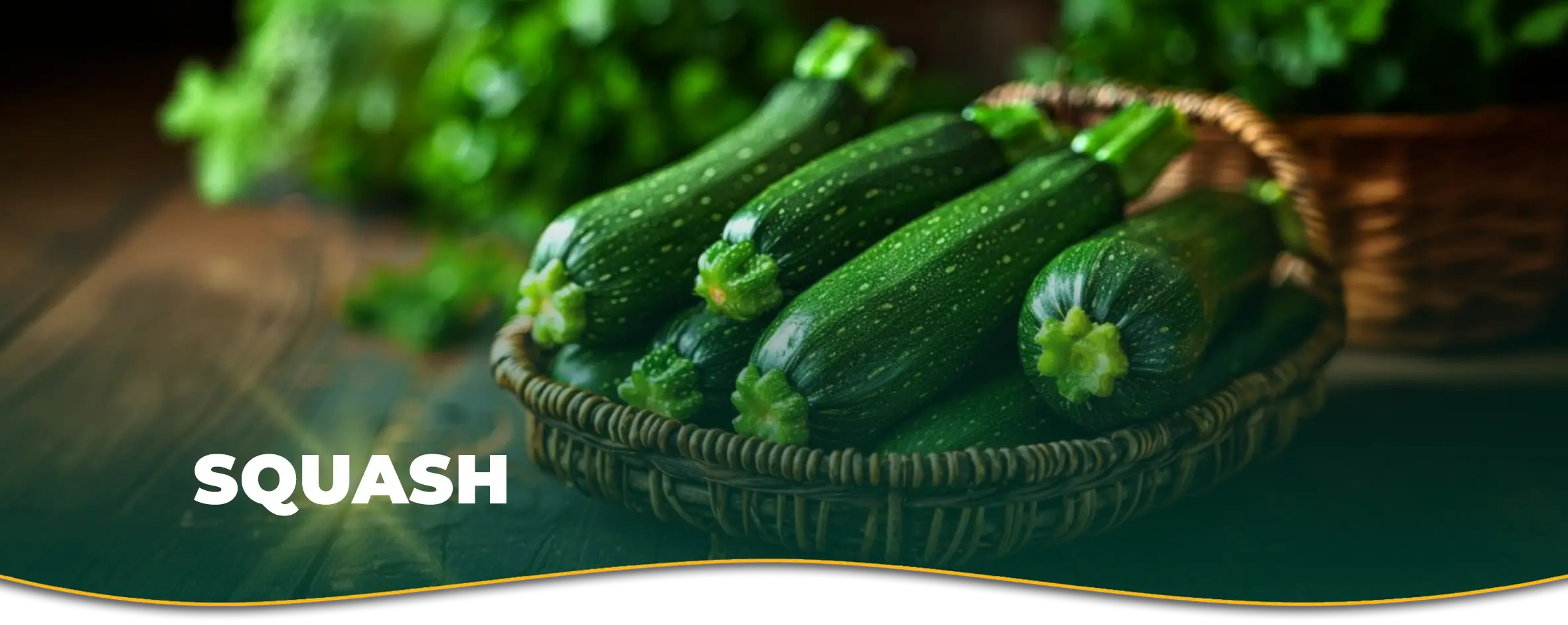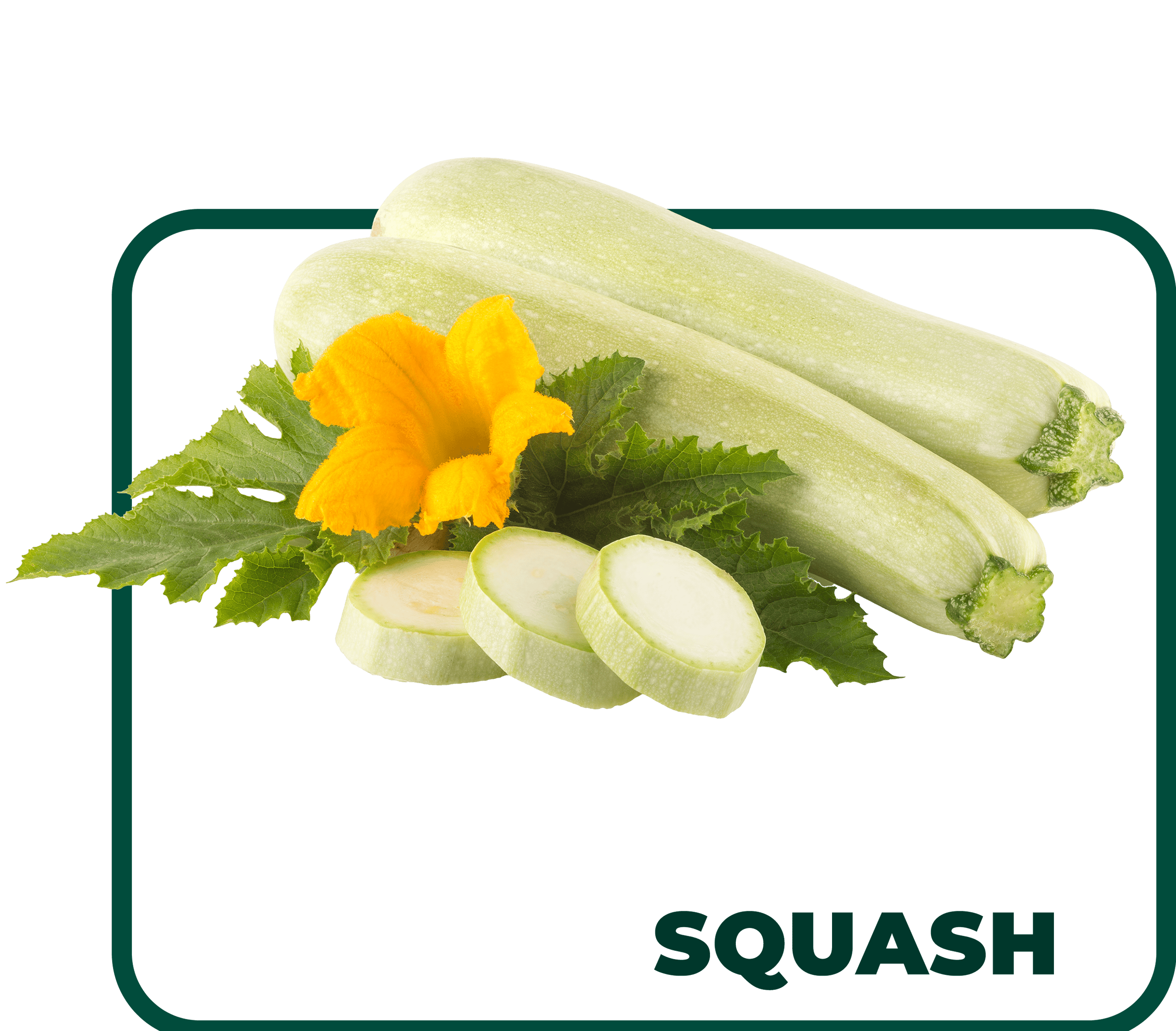
Squash
Egyptian squash, which includes both summer and winter varieties, is celebrated for its mild, slightly sweet flavor and versatile uses in cooking. Summer squash, such as zucchini, has tender, edible skin and a soft texture, making it ideal for sautéing, grilling, or adding to salads. Winter squash, like butternut or pumpkin, has a thicker skin and dense, sweet flesh, suitable for roasting, soups, and baking.

Squash is typically planted in late spring or early summer, after the last frost has passed. It prefers well-drained soil with plenty of sunlight and requires consistent moisture for optimal growth. Summer squash is usually ready for harvest within 50 to 60 days of planting, while winter squash takes about 80 to 120 days, depending on the variety. Harvesting involves picking the squash when it reaches full size and has a firm texture, with winter squash being harvested when the skin is hard and the color is fully developed.
Consuming Egyptian squash can improve digestion, support immune function, and promote overall well-being. The high vitamin A content helps maintain healthy vision and boosts the immune system, while vitamin C supports skin health and collagen production. The dietary fiber in squash aids in digestion, helps prevent constipation, and stabilizes blood sugar levels. Antioxidants in squash help reduce inflammation and protect against cellular damage.
Squash is rich in essential nutrients, including vitamins A and C, potassium, and dietary fiber. Vitamin A supports healthy vision and immune function, while vitamin C boosts the immune system and promotes skin health. Potassium helps maintain healthy blood pressure levels, and dietary fiber aids in digestion and helps regulate blood sugar levels. Additionally, squash contains antioxidants such as beta-carotene and lutein, which protect cells from oxidative damage and support overall health.
